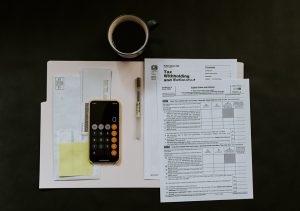Inheritance tax is changing in 2026
What farming families and business owners need to know If you own a farm,...- 11 February 2026
Posted: 14 July 2022
It was recently revealed by the HM Revenue & Customs that Inheritance Tax receipts during April 2022 totalled an eye-watering £0.5 billion. This is £10 million higher than during the same period in 2021.
This soar in Inheritance Tax paid can be attributed to multiple factors, the most common being the rise in Property values. The Stamp Duty holiday introduced in July 2020 played a considerable role in increasing the value of Properties as people sought to make the most of the stamp duty exemption period and the lower interest rates for mortgages. This all lead to a substantial increase in Property values around the country which, in turn, saw individuals own estate values increase.
Inheritance Tax was introduced, in its current form, in 1986. It is classified as a ‘transfer tax’ and is paid on a deceased’s estate where assets (including property, possessions, and liquid assets) are being gifted or transferred to another either by a Will, by intestacy or by statute.
Following a death, the Personal Representatives of an Estate must ascertain the value of all the assets within the estate, deduct any allowances liabilities and calculate the estates value.
If the estates value should exceed the current Inheritance tax nil rate band (which is the total tax-free allowance provided to all individuals) then the estate will be classed as a taxable estate and will be liable to pay Inheritance Tax to HM Revenue and Customs at a rate of 40%.

For the tax year 2022/23 everyone has a tax-free allowance limit of £325,000 also known as a ‘Nil Rate Band’. In addition, if you are a surviving spouse of a marriage or Civil Partnership you could potentially apply to transfer your late spouse’s own nil rate band increasing your own tax-free allowance to £650,000.
Further from April 2020, an additional allowance became available, which for the tax year 2022/23 is set at £175,000. This additional allowance can be applied where your home is left to direct lineal descendants e.g., children or grandchildren. It is also possible to transfer a late spouse’s additional allowance providing some estates with a tax-free allowance of £1 million.
These tax-free allowances are currently frozen until 2026.
The best starting point if you believe that your estate may be liable for Inheritance Tax is to seek assistance from a Solicitor. They will discuss your estate value with you and recommend that you put a valid Will into place drafted in the most tax efficient way possible.
Other ways to reduce your potential liability may be by ensuring that you have made the most of annual gifting allowances as well as other allowances and exemptions available for family events, charitable causes and for those who have ‘excess income’.
Inheritance tax can be a complex area but working with a Solicitor to help you understand how much Inheritance tax you are likely to pay and how to offset any liability, could not only reduce your Inheritance bill but remove the worry and stress for your family and loved ones.
If you would like to discuss your estate, then why not take advantage of our FREE 30-minute free consultations. To make an appointment please contact our Chelmsford team on 01245 493 959 or our Shoeburyness team 01702 298 282. or complete our online form.
- 11 February 2026
- 09 February 2026
- 07 February 2026